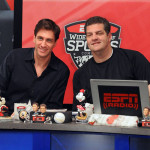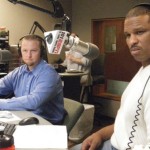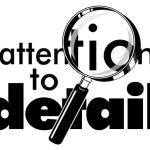For the past two decades, sports radio stations across the country have made a stronger commitment to pairing broadcasters and former athletes. It’s been labeled as the “winning combination” inside industry circles and when built properly and executed well, it can draw larger audiences to the dial.
 The idea is to put the broadcaster in charge of handling the formatics, topic building, audience engagement, and sponsor reads, while delivering the opinions that are representative of the local fan base. The athlete meanwhile provides the on the field insight and experience and utilizes their relationships inside the game to create content that is unique and unable to be duplicated.
The idea is to put the broadcaster in charge of handling the formatics, topic building, audience engagement, and sponsor reads, while delivering the opinions that are representative of the local fan base. The athlete meanwhile provides the on the field insight and experience and utilizes their relationships inside the game to create content that is unique and unable to be duplicated.
On the surface that formula may make sense but there are also a few things that aren’t often taken into consideration.
First, an athlete certainly does provide great name value to draw in the common fan. That doesn’t mean though that they’re going to click with the broadcaster you pair them with. Some air talent are insecure, jealous, and agitated by the fact that the former player didn’t have to pay dues to earn their spot. Quite frankly, they don’t have the right mental makeup to be part of that type of program.
Secondly, the athlete doesn’t always respect the medium or care to put in the hard work that’s required to help a show succeed. Some players lose sight that their career may have helped them gain entry inside the building but that only lasts for so long. A number of them turn to this line of work because they’re not sure what to do when their playing days are done, and this seems like an easy transition. Once they recognize that their is a homework assignment every day and night, they get frustrated, mentally check out and eventually leave.
 Most most athletes who break into this business usually do so between the ages of 35-50. That’s often when a personality’s career is just taking off. For a broadcaster who has paid dues and chased success and finally has it within their grasp, the last thing they desire is to be connected to an athlete who was given a shortcut to the same position and doesn’t care to invest themselves as much as they do in the opportunity. In many instances, they believe that the athlete is in foreign territory and doesn’t belong in it because they don’t understand the rules of the radio game nor care about them the same way.
Most most athletes who break into this business usually do so between the ages of 35-50. That’s often when a personality’s career is just taking off. For a broadcaster who has paid dues and chased success and finally has it within their grasp, the last thing they desire is to be connected to an athlete who was given a shortcut to the same position and doesn’t care to invest themselves as much as they do in the opportunity. In many instances, they believe that the athlete is in foreign territory and doesn’t belong in it because they don’t understand the rules of the radio game nor care about them the same way.
But that’s where even the smartest broadcasters in this business can be wrong and make a major mistake.
The reason some of these pairings perform at a high level is because both men involved in the creation of the program understand their roles and how to present something of value to the audience. They realize their own strengths and weaknesses and how to use them to build a show that connects with everyone. They share a strong work ethic individually and collectively, and they place a high priority on developing a chemistry and relationship that carries onto the airwaves. There is no “ego” in worrying about who the star is or how much mic time they receive, only a focus on creating good content and lifting each other up.
 I’ve been lucky to work with some great former athletes, coaches and front office executives like Lorenzo Neal, Eric Davis, D’Marco Farr, Chris Duncan, Rick Venturi and Tony Softli who did their homework and cared about what they were presenting. I found them all to be excellent to work with because they had a number of things in common – they loved to compete and win, they believed in preparation, and they were willing to accept coaching and criticism when they weren’t taking care of their responsibilities. These guys made their living for years off of winning and losing, and they understood that when they made plays and put more W’s on the board, it led to more money in their pockets.
I’ve been lucky to work with some great former athletes, coaches and front office executives like Lorenzo Neal, Eric Davis, D’Marco Farr, Chris Duncan, Rick Venturi and Tony Softli who did their homework and cared about what they were presenting. I found them all to be excellent to work with because they had a number of things in common – they loved to compete and win, they believed in preparation, and they were willing to accept coaching and criticism when they weren’t taking care of their responsibilities. These guys made their living for years off of winning and losing, and they understood that when they made plays and put more W’s on the board, it led to more money in their pockets.
Because I understood their mentality and could relate it to the sports radio business, they were able to digest a lot of what we do, and have their own successes. I learned that what I was worried would appear foreign to them, actually became very simple for them to pick up because it all tied back to wins/losses, strategy, preparation, teamwork, and being accountable.
If you’re an on-air talent, producer or programmer and you have an athlete on your team, remember this. Just because a former player didn’t grow up on teases, re-sets and TSL and take the same road to radio stardom that you did, doesn’t mean they don’t have the same desire or an ability to understand how to execute. It sounds cliche but the best teams in sports often deliver the best results, and in radio it’s not much different.
One person who has had experience with this subject is Program Director Bob Richards. Bob has worked in Boulder and Denver, Colorado, Buffalo, New York and was most recently in charge of programming for 790 The Zone in Atlanta before the station flipped formats. Having managed a number of former athletes during his career, I thought he’d have some great insight to offer and I think you’ll really enjoy the way he lays out tackling this topic.
Everyone Can Relate To The Scoreboard
Here we are getting ready to celebrate the New Year, a time for resolutions to do things differently in an effort to create better results in various areas of our lives. For me, I’m praying to God that 2016 brings a FATTER bank account and a THINNER body. It’s the same prayer I had last year but I apparently I didn’t communicate it very well and he got the two mixed up!
 I’m a big advocate of prayer but prayer isn’t a strategy, especially when it comes to your air staff and communicating with them to get the most out of them. If your staff is composed of air talent who come from a radio background and former players who have played for one of the major sports leagues, you’re sitting on a potential time bomb that you need to manage before it blows up.
I’m a big advocate of prayer but prayer isn’t a strategy, especially when it comes to your air staff and communicating with them to get the most out of them. If your staff is composed of air talent who come from a radio background and former players who have played for one of the major sports leagues, you’re sitting on a potential time bomb that you need to manage before it blows up.
Air talent working with former players creates an interesting dynamic. Think about it, the radio guys view the jobs they do as their career and they think former players view their job as a hobby they do to satisfy their egos! They question the player’s motivation and dedication. They take issue when players seem to operate under different rules. They think some players can be condescending, operating from the position that if you didn’t play the game you can’t possibly have an opinion, let alone a correct opinion.
Their fear is that the players think show prep and guest acquisition is beneath them and they either won’t participate in remotes and client meetings or they don’t know how to act in those situations. Throughout my career I’ve heard it all. If it isn’t being verbalized between members of the air staff it’s being thought about. So what’s a manager to do?
Clearly there are significant benefits to having former players on your air staff. They bring a much higher profile to a new show both with the audience and with potential guests. It’s important that the staff understands those benefits and buys into them. Former players usually come with unique issues. The higher the profile, the more issues, especially with regards to scheduling. Helping the staff understand why it’s worth it is key.
 For me, the answer to getting buy in from the staff is the same answer as getting more out of the former player, it’s a meeting I call the Scoreboard. The key to managing a former player is to appeal to the one thing they can relate to – COMPETITION! They have to know if they’re winning or losing and what’s working and what isn’t.
For me, the answer to getting buy in from the staff is the same answer as getting more out of the former player, it’s a meeting I call the Scoreboard. The key to managing a former player is to appeal to the one thing they can relate to – COMPETITION! They have to know if they’re winning or losing and what’s working and what isn’t.
In this meeting I start with a picture of an NFL scoreboard. It shows the score is 21–17, it’s the 4th quarter with two minutes left, the visitors have the lead but the home team has the ball on their own 20. Both teams are out of time outs.
I then ask the former player(s) what they know from looking at the scoreboard and I get the obvious answers. Most will say the visitors scored three touchdowns and kicked three extra points and the home team scored two touchdowns and kicked a field goal. There are other ways to have achieved those point totals and we discuss what those unlikely but possible scenarios might have been.
 Then I ask, what is the strategy we can assume from looking at the Scoreboard? We spend time discussing that a field goal does the team no good, they need a touchdown and since they have no time outs and 80 yards to go, they most likely won’t be running the ball. The defense is going to counter by using extra defensive backs, defending the boundaries so the offense can’t get out of bounds to stop the clock, and likely dialing up different blitz packages.
Then I ask, what is the strategy we can assume from looking at the Scoreboard? We spend time discussing that a field goal does the team no good, they need a touchdown and since they have no time outs and 80 yards to go, they most likely won’t be running the ball. The defense is going to counter by using extra defensive backs, defending the boundaries so the offense can’t get out of bounds to stop the clock, and likely dialing up different blitz packages.
After we go through all the scenarios based on nothing more than looking at the Scoreboard I then ask the most important question of the former player(s). Do you expect that your teammates can read the scoreboard and know everything we just discussed? How would you feel about a teammate who couldn’t read the scoreboard, didn’t know how many points a touchdown was, and had to be told what to do in every case, then didn’t follow what they were told because they thought they knew a better way?
After I hear all the macho answers about the different ways that teammate would no longer be a teammate, I put up the second slide. It says, under no circumstances should anyone in the room answer any of the questions I’m going to ask next.
Then I put up ratings, AQH, Cume, Shares, ATE, etc. and I inform them that this is a radio scoreboard. Can you read it? Do you know who’s winning? Can you figure out how they put up those points? Can you develop a strategy based on what you see? If your answer to any of these question was no, are you being the best teammate you can be?
 The reality is they don’t need to understand all of the ratings minutia, that’s my job. What they do need to understand is that in the PPM world attention to detail matters, proper execution matters, getting one person in their target demo to listen for 5 more minutes a day can mean the difference between winning and losing, and being paid a bonus or missing out.
The reality is they don’t need to understand all of the ratings minutia, that’s my job. What they do need to understand is that in the PPM world attention to detail matters, proper execution matters, getting one person in their target demo to listen for 5 more minutes a day can mean the difference between winning and losing, and being paid a bonus or missing out.
The Scoreboard meeting is meant to put everyone on notice of what my expectation is of them, all of them. It’s meant to appeal to their sense of competition. It’s meant to get them to come in for individual coaching sessions tailored to their level of knowledge and to get everyone on the team to the same basic level of understanding about why we do what we do and what my expectations are of them.
In the follow up individual meetings we go into what we can learn from the ratings and how we can manipulate them. They learn the importance of cross promotion with other dayparts, how to create a Target User Profile that defines who their audience is and help focus content decisions. They see the first of a few weekly reports, an On Time Report detailing how often they go into break on time ranked against the stations other shows and their competition.
I publish a “Social Media” report monthly that looks at Twitter and various social media follower totals that ranks them against other air talent in the market. There is a weekly website report that details the number views of their show page vs. other shows. I also publish a podcast download report that details the number of downloads vs. the stations other shows. Everything is designed to educate them on how they’re doing, how they can get better and to promote competition, the very thing former athletes thrive on.
 In my career I’ve had the privilege of working with both the good and the bad when it comes to former players transitioning to air talent. It was easy to see why Alge Crumpler was a four time Pro Bowler. He was a tireless worker who couldn’t put in enough time to learn his new craft. Former Quarterbacks Dave Archer and DJ Shockley came with the same preparation for show they put into a game plan.
In my career I’ve had the privilege of working with both the good and the bad when it comes to former players transitioning to air talent. It was easy to see why Alge Crumpler was a four time Pro Bowler. He was a tireless worker who couldn’t put in enough time to learn his new craft. Former Quarterbacks Dave Archer and DJ Shockley came with the same preparation for show they put into a game plan.
Rodney Harrison recorded his weekly show for Westwood One from our studios in Atlanta and every week he came in with pages of handwritten notes well before his recording was supposed to start. I’ve also had to fire two very well known players from the Falcons Super Bowl team who didn’t give their radio jobs the respect it deserved. Both were hired by the competition and subsequently fired by them!
The New Year is only a few days away, and people treat the holiday like it’s some sort of life changing event, but the truth is, if the ratings and work ethic sucked last year, they’re going to suck next year. The way you change that is by motivating your staff to work as a team, and be laser focused on proper PPM blocking and tackling by tapping into the one thing they all understand – COMPETITION!
Bob Richards has served as an On-Air Talent, Program Director, Operations Manager, Vice President and Market Manager. He has worked in many different markets and formats can be reached by email at BobRichardsRadio@gmail.com or on Twitter @radiorichards.







